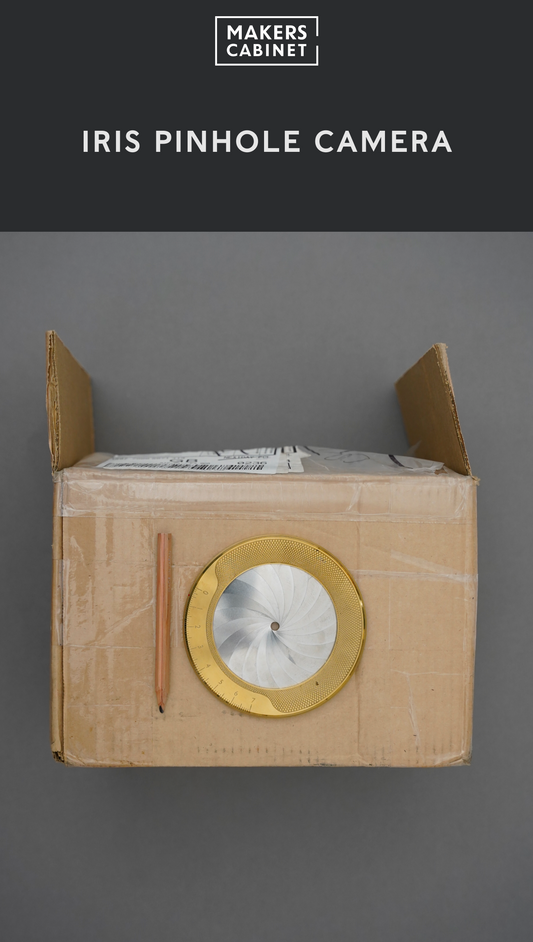
Welcome back to our interview series, Cabinet Sessions, where we sit down to chat with designers, artists, and craftspeople. We explore the nature of creativity, ways in which people have found their niche, and ideas for the future. Follow the conversation here on the Makers Cabinet Journal.
Woodworker Helen Welch has been teaching furniture making for over 25 years, nurturing a love of making in her students and inspiring others to rise to the challenges of her craft. In 2013, she started the London School of Furniture Making in South Tottenham.
Before our conversation I already knew that Helen was a highly skilled craftsperson, but what I had yet to find out was that she’s straight-shooting, cool as hell and an absolute delight to talk to. We spoke about prioritising time for creativity, the joy of working with really good tools and tough love advice for aspiring furniture makers.
Interview by Sam Stone
__________________
How did you get into making furniture?
I went through several different formal educations that were woodworking related but I never did any formal furniture making training. I did carpentry, joinery, shop fitting, but never really stuff focused on furniture specifically, that just came through all the other ancillary skills. Furniture making ended up being something that I settled into. It’s not the only thing that I do, instrument making is as much an interest. So as far as I'm concerned, I'm a woodworker, which covers everything.
What was the first piece of furniture you made?
The very first bit of furniture I made was a chair and it was because I was just curious. I thought well, I've got the skills to cut wood, and to pallet and to do all the other things... so let's just try something, let's just try a chair. Chairs always have a certain mystique about them because they're difficult to make. They have to be comfortable enough and they have to be strong. There’s a lot of engineering challenges involved as well as aesthetic.
Do you remember the first object that you made that you really loved and felt proud of?
Oh, I think it was a toolbox. I made a toolbox for my first kit of tools. I was maybe 17 going on 18, it was the first time I looked at something and I thought, wow that's good.
Why did you decide to start the London School of Furniture Making?
I decided to start the school because I had been teaching for years for other places. Since I was 24ish, it's always been part of the way I earn a living. I would teach evening or weekend classes for other institutions, and then I'd be doing my woodworking during the week. I thought, why am I going to other places when I now have a workshop? The space is here, I like teaching and I'm not enjoying making for customers very much anymore. Maybe something in this setup is telling me that I should have students in here instead of devoting all my time to making things that are never going to make me any money.
Why do you think you fell out of love with making things for customers?
I don't like customers. That's the bottom line. This is not to say that all customers are horrible, the majority of customers are actually lovely. As a maker you give a lot, I certainly did, because I love making, I love what I do and I wanted customers to recognise that that was part of the service I was providing to them. It's a bit like trying to get a parent or a teacher to notice you. It’s an emotional need, that they recognise what you're doing. As I got further along, I realised that most of my customers didn't notice what I was doing and what I could give. Also, a lot of what I wanted to offer versus what I was doing didn't really match up. I thought, I've got high level skills... if I can make a guitar, why am I making an MDF wardrobe? Why is it that the MDF wardrobe is the thing that people want me to do, when I can do so much more?
There was really so much untapped skill, and just not getting the love from customers. I think that's the truthful thing to say. I thought it would get better, more people would recognise what I can do, but it went the other way. I didn't know how to dig myself out of that particular doldrum. At the same time, I was enjoying teaching so chose to prioritise it and move away from the things I didn’t like.
Do you think a lack of appreciation comes from people being used to very cheap furniture?
Yes, I think that's part of it. The other side of it is that customers often have a certain budget in mind that seems big to them, but isn’t actually big for what they wanted. It's quite hard to make somebody budge from the figure that's in their head. If they want a wardrobe that's £2000, the only thing you can do is make it in MDF and have it painted. If you're someone who's got quite good fine making skills, then what you really want is customers who have a budget of £20,000 and want something exceptional.
Do you still make furniture outside of teaching?
I don't do much in the way of furniture these days. I still make things, but I want to make small, exquisite things, instead of bigger, more functional and practical things. I like pieces that I can spend a lot of time and focused attention on, but when you come to stand away and look at it, it's tiny. Put it in your pocket and walk away. That gives me much more satisfaction than trying to make something quite big.
The last thing was a small, silver hand plane, more a piece of jewellery than anything else. I spent hours and hours on it and it's just there, sitting quietly, being lovely.
Did your experience of studying guitar making inform the way you teach at the school?
Yeah, I mean guitar making involves a lot of fine, high level hand skills. Part of what I enjoy trying to introduce my students to is the joy of working with really good tools in a way that would lead you down a path of instrument making or furniture making or something. That definitely has informed my teaching for the last 20 years. I'm not strict, but I have a set standard, which I want students to aspire to.
What are most of your students like and what do you think they want to get out of it?
The majority of students are people who are highly skilled in their careers, but they want something else. They want something that is more satisfying, tangible and fun. Most of the students are people who want to make things but aren’t looking for a career change. They've come because it's a hobby and they want to to be good at something that requires a certain amount of skill.
Whether they actually get what they expect is sometimes debatable. Students often think it's gonna be something quite relaxing, but then it turns out that it's not relaxing at all. It's actually quite stressful because becoming good at something or trying to move towards a certain level of precision and accuracy, is quite demanding. For some students, it's the first time they've been challenged in doing something that hasn't come "naturally" to them. I think the majority of people are glad that they leave with an insight into what woodworking is really about and the demands and the skills that go into it.
So it's not quite the relaxing hobby that they thought they were signing up for…
No, it's not whittling you know, actually it is stressful. But it's stressful because you're challenging yourself to do something that's difficult.

Do you think you enjoy that stress?
Yeah, I like to do things that are demanding but there has to be a payoff. If I had gone off and done guitar making and I wasn't very good at it or there wasn't any noticeable improvement, I would have been a bit down on myself. I think most of us enjoy being pushed in a way that isn't necessarily comfortable, if you’re willing to persevere with it, there is a payoff in the end. The payoff is either exhilaration, satisfaction, or new knowledge. If you go into something, work hard at it, but come out the other end feeling like you've haven’t got better, or you've not gained anything, that's when you'll be put off.
I definitely agree, I've had that experience with craft projects where it's been harder than I thought or I've messed something up but eventually, you look at it and think that's actually kind of decent... that bit of fabric sort of looks like a dress now.
No one has to be brilliant, that's the thing. As humans, we have an innate desire to just create things. It doesn't matter what the medium is, we like to create things and to understand how things work. To get our hands dirty, then come out the other end and go, “tada!”, look what I've done. We all like it, kids love it especially. I think as adults, we still have that in us. We want to spend time focused on something, to spend hours involved in it, entirely satisfied in it. Even though things go wrong or don't work, that frustration turns into an emotional high when you finish.
It's a shame that crafting and creating is something that most people really love but it often gets left in childhood, because having spare time to make things is a luxury.
Crafting things is really, really important for our emotional and mental well being. Creating things is meaningful work. What’s happened in the last 40 or 50 years is that making things is no longer part of everyday life for most people. There are makers and there are non-makers, just like there are musicians and non musicians. If you're a ‘non-musician’ you think you can't make music, but you can, you just might not be as brilliant as a professional musician.
Where does your inspiration to keep making come from?
When I was younger, I had something to prove to myself and maybe I wanted to prove things to other people. Like look at me, I'm good at this, look at me, I can do this, whereas now I just do it purely for my own personal satisfaction. It makes me feel sane; It makes me settle into a space that feels safe and comfortable.
How old were you when you stopped feeling like you needed to prove things to other people?
I think I can trace it back to probably about 10 years ago, so that would put me into about my mid 40s, when I thought, “hang on a minute, I don't need to keep doing this”. What I want other people to recognise is not happening, and actually, what I need is just me. I just need me to recognise what I can do and enjoy that. With each passing year, it becomes more pressing to me to just do something that's about my needs and my satisfaction and not about what I want other people to think about what I've done.
I'm 24 so I think I might have a while to go then, but I look forward to it.
I think it's a natural progression. You want to learn as much as you can, you want to get as good as you can and you want to demonstrate that. You have to get a job and you have to show other people that you're good and competent and can do what you're saying you can do. I'll probably be retired in the next 15 years, and I don't feel like I've got anything to prove. It's much more comfortable for me now that I realised that I don't really need to expend a lot of energy to get some approval back. I feel quieter now, and happier for it.
Starting the school was probably the beginning of settling into the new me. I like being around people and I like imparting knowledge. I like seeing people either soak it up or do something with it. That's what craft skills are, you pass them on, you don't just keep them to yourself and then die with them. The fact that people are prepared to pay me to share it, means that I can actually enjoy my working life more, now that I've settled into something that suits my temperament.

Have the techniques you teach been changed at all by digital advances?
Not in the least! I really appreciate what digital can bring to making but my focus is always on hand tools. The analogue way of doing stuff is direct, that interaction between your body, the tool, the material that you're working with, the feedback is immediate. You can't just click undo and go back and start again. It's high stakes furniture making, every cut, every movement has a direct effect on the material in front of you. It's either going to be right or it’s going to be wrong, and then you have to adapt. I love digital, because you can redraw this thing or recalculate that thing. But in terms of teaching, that's not where my interests lie.
Finally, what advice do you have for people who want to start a career in furniture making or woodworking generally?
My advice is to first understand how business works. Most of the woodworkers I know have no idea how business works. Like me, they sort of stumbled into it, they're skilled at making but not so great at running their businesses. Before you rush off and set up your own business, work for someone else for a few years. Watch how they run their business, pick the good bits, and reject the bad bits.
Understand that you're in the service industry, you're not just making a product. The demands of the service industry are quite different to what furniture making instinctively feels like. Take off the rose tinted specs, look at what the reality of the business is and also get to love MDF, because that's what you're going to spend most of your life working with.
That wasn't quite the inspiring advice I was hoping for...
Yeah I've got a special bucket of cold water for people who want to go into furniture making. I love woodworking, I think it's one of the most fantastic skills that you can be involved in. But as a business and as an industry, it's not what you might expect.


_____________
We always leave Helens workshop with a big smile on our faces, and a warm feeling of down-to-earthness and joy (very unlike getting a bucket of cold water delivered on your head). She truly brings out the best in people, whether she's scolding you for misusing her beautiful hand tools, or having a pint of Guinness with you afterwards, we always learn from her words, actions, and vast skillset.
We encourage everyone to check out her teaching by clicking here at the London School of Furniture Making



